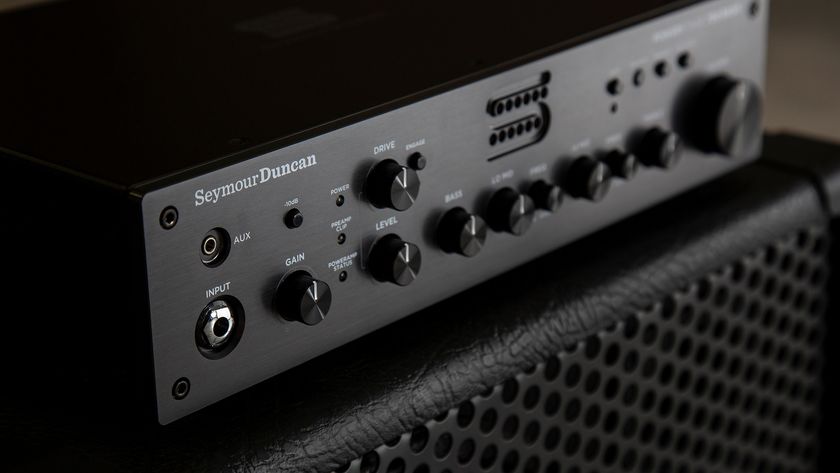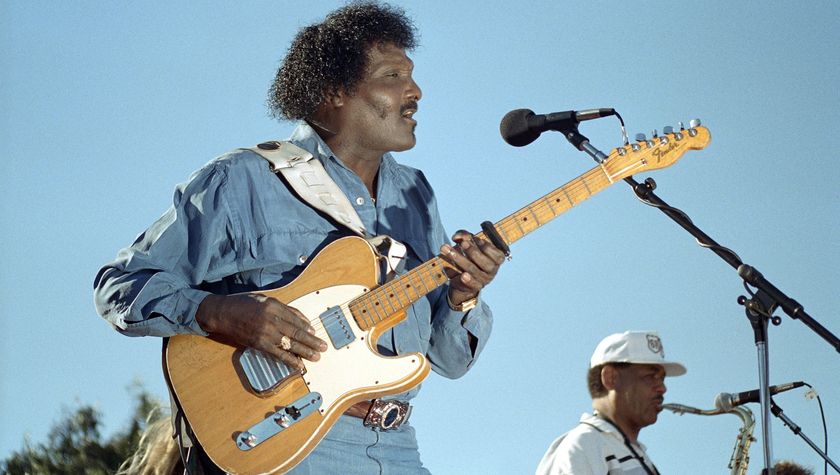8 things to expect when you start learning the guitar
From calloused fingers to finally nailing that first song, playing the guitar is one of the greatest journeys of your life
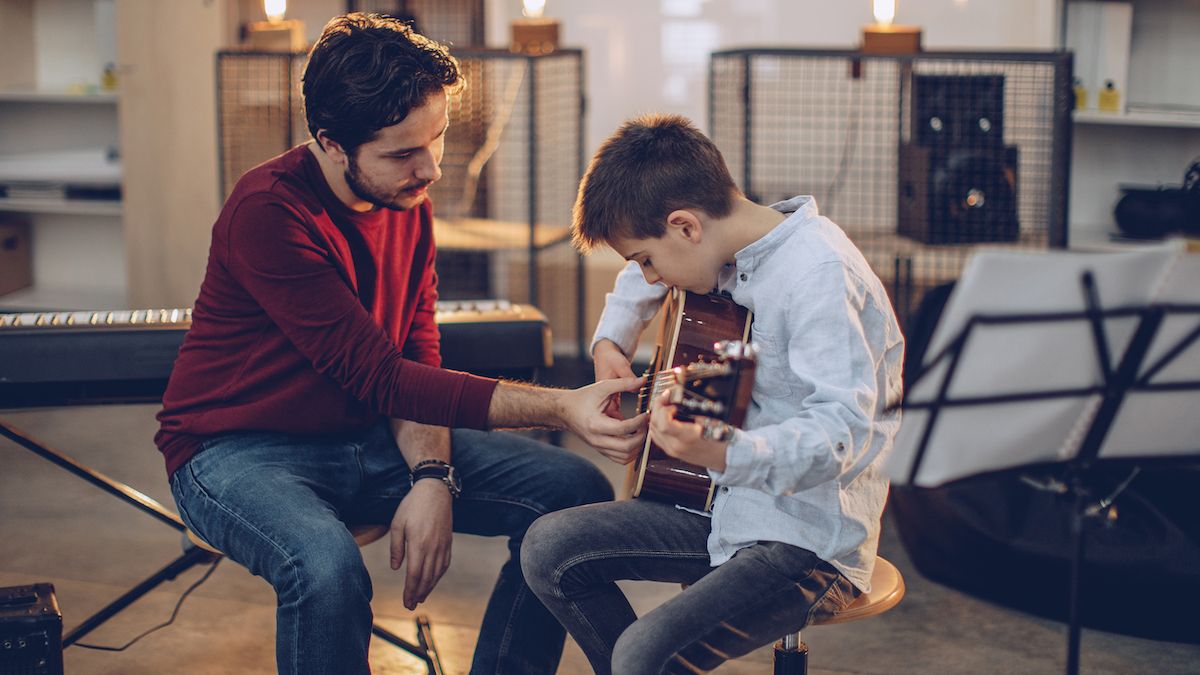
You’ve decided to learn the guitar. Congratulations! You’ve taken the first step on a journey that will provide you a lifetime of enjoyment. Providing you stick to it, that is. Which you should!
When you start anything new, be that a hobby or a job, there are bound to be questions you’ll have about how things will pan out, and what you can expect. Here we’ll pool together some thoughts we’ve had, and outline some of the things you can expect when you start learning the guitar.
- The best acoustic guitars for beginners: 10 easy strummers
- Best beginner electric guitars: learn to play on these epic electrics
- Beginner guitar gear essentials and guitar accessories
1. Progress will be slow
Unless you’re some kind of prodigious talent, the chances are that progress will be – at the start, at least – painfully slow. Painful being the operative word. More on that later. Put simply, there is no easy way to learn the guitar. There are no shortcuts. Not only that, if you find something which does appear to be a shortcut, there’s every chance it will sow the seeds of poor technique which will hamper you later down the line.
The best advice here is to go easy on yourself. Allow yourself to be a bit rubbish at the start. Film yourself playing now, and then in a year’s time record yourself again. You’ll be surprised how quickly things do start to fall in place once you’ve got over the first few hurdles.
2. You won’t sound like your heroes… yet

Maybe you’ve chosen the guitar because you like the sound of it. Or maybe some of your musical heroes were, or are, guitarists. If that’s the case, great! Only you should be aware it will be a long, long time before you play at their level. There’s an old theory that to master anything, you need to do it for 10,000 hours. A guitarist playing at the highest level will likely have lapped that particular number many times over, so keep that in mind. If the guitar was easy, everybody would play it right?
What you might find, however, is that as you progress you spend less time wanting to emulate your guitar heroes and more time trying to find your own style, sound and techniques. This, you’ll find, is a much more fulfilling road in the long term.
3. Your fingers might hurt at the start
It’s true, at the start at least you may experience some discomfort. Particularly if you are playing a cheap acoustic guitar with strings that sit an inch from the fretboard. You’ve got two options here; get a new guitar that is easier to play or – our preferred one – battle through the pain. If you choose the latter, you’ll develop hardened fingertips that will make a mockery of puny guitar strings. As you progress, you’ll also find these newly calloused fingers will mean you don’t need to press down so hard on the strings too, making it quicker to move around the fretboard. Pain now, progress later.
Get The Pick Newsletter
All the latest guitar news, interviews, lessons, reviews, deals and more, direct to your inbox!
4. It is not an inexpensive hobby
Getting seriously into any hobby or pastime can prove costly eventually, but guitar-playing can be seriously wallet-draining. It’s not just the guitars, either. Factor in amplifiers, pedals, accessories, more guitars, more effects, recording, and playing live, and you can see how it starts to add up. That’s before you change musical direction completely in five years and need an entirely new rig.
It is possible – indeed, advisable – to be thrifty, at least at the start. While you might want to dive straight in with an American-made Fender Stratocaster, there’s benefits to be had in working your way up to that level. As you progress with your playing, you’ll upgrade your gear over time so that when you do unlock those top-tier items, you’ll feel like you can fully get the most out of them. Basically, your first few guitars don’t have to be the only guitars you ever own so don’t fret too much about it. Pun intended.

5. There’s no substitute for practice
It’s that old ’10,000 hours’ thing again. Unfortunately, it’s true. The only way you will improve on the guitar is if you actually play the thing. A lot. That doesn’t mean watching YouTube videos, or lusting over obscure pedals. No. If you want to get good, you need to put the hours in. That means nights sat with a metronome playing the same tricky lead lines over and over again until you get them right. And then playing them over and over again some more until you can’t get them wrong. There’s no secret to being a good guitarist. You’ll get out of it whatever you put in.
6. You might start listening to music differently
Interesting one, this. In the same way a car mechanic might watch motorsport looking for different things than a regular fan, a musician tends to listen to music differently to someone who doesn’t play. If you’re a guitarist, that means examining the players’ techniques, and looking at the equipment they use. The benefit you’ll get from all of this comes in the form of inspiration. You’ll also develop the ability to critically listen to music, so instead of just asking “do I like this music”, you’ll start appraising the technical proficiency, and the production values, and the craft of writing memorable songs. Music will take on another level of detail, all of which will benefit you in the future.
7. Being in a band is the greatest fun you’ll ever have
There are many reasons people take up the guitar, but whatever led you to the instrument, you can be sure one of the greatest rewards you’ll get comes from playing in a band. For us, the simple act of getting a few friends and joining forces musically to play songs together is one of the purest forms of joy there is. From having like-minded people to talk about your craft with, to that moment when you’re all jamming and you stumble on a chord progression you all like. Playing solo is great, don’t get us wrong, but that shared experience of playing with other people is a truly wonderful thing indeed.
8. A guitar is a friend for life
Learning the guitar gives you many benefits. From developing a skill, to inspiring you creatively, to giving you common ground with other guitar fans; it’s an amazing way to pass the time. It’s a long-term venture too though. Put the hours in at the start, and you’ll have a skill for life. Your musical tastes might change, and the time you get to dedicate to it may dwindle as life takes hold, but nobody will ever be able to take away your ability to take that wooden machine with the shiny metal strings, plug it into a guitar amp and make it sing. And each and every time you do that, you’ll be glad you did. Glad you spent all those hours learning pentatonic scales. Glad you tried all those weird and wonderful amp and pedal combinations. And glad you took those first baby steps.
Chris Corfield is a journalist with over 12 years of experience writing for some of the music world's biggest brands including Orange Amplification, MusicRadar, Guitar World, Total Guitar and Dawsons Music. Chris loves getting nerdy about everything from guitar gear and synths, to microphones and music production hardware.
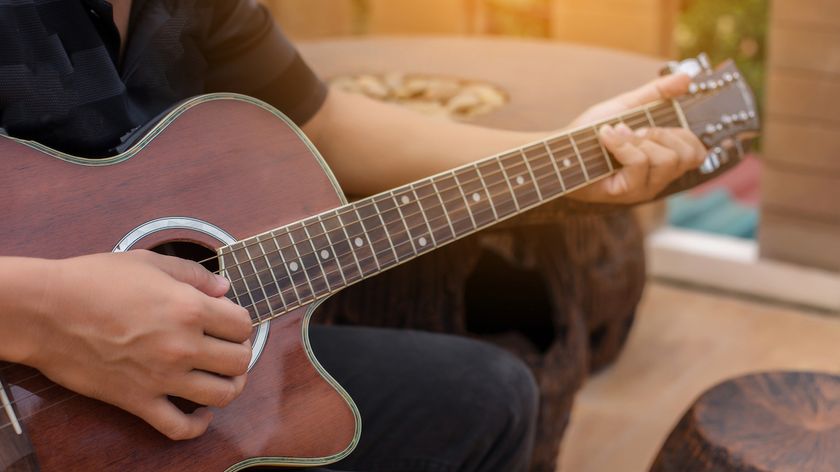
"Upgrading from your entry-level acoustic opens the door to an entirely new world of tonewoods, body shapes, and brands": 6 signs it's time to upgrade from your first acoustic guitar
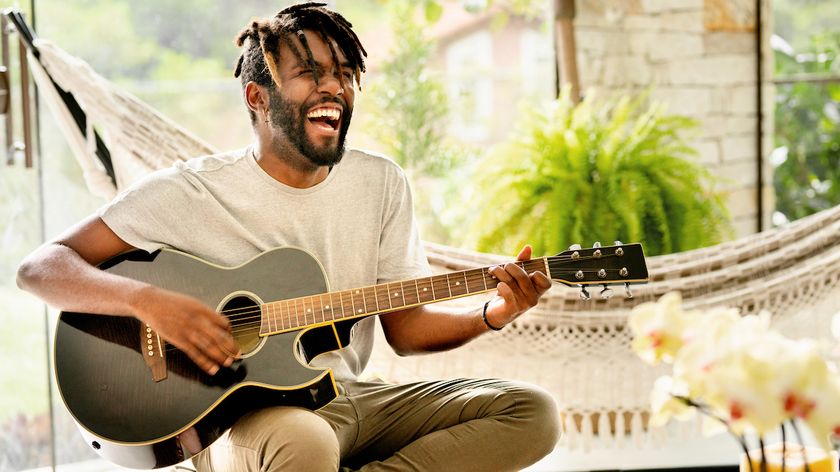
"I'm past my prime": 5 common excuses for not learning the guitar – and 5 body and mind-boosting reasons you should

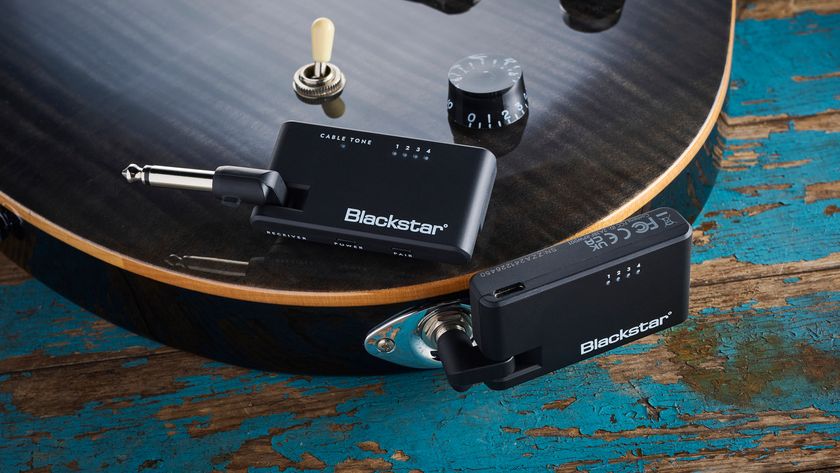




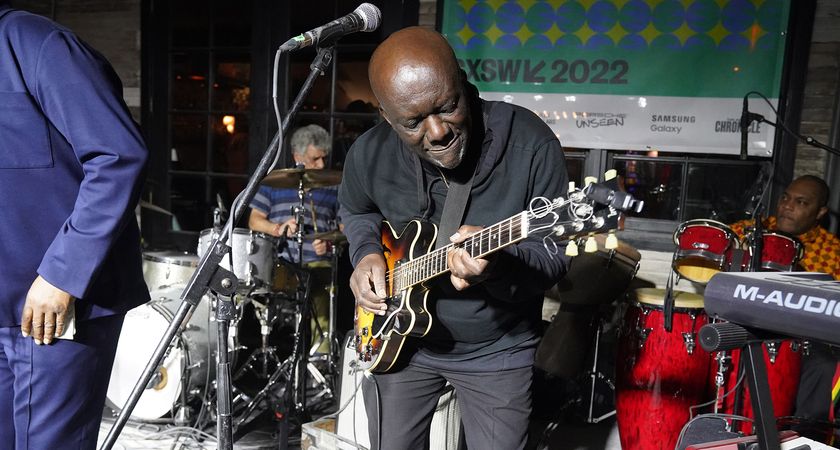
![[L-R] George Harrison, Aashish Khan and John Barham collaborate in the studio](https://cdn.mos.cms.futurecdn.net/VANJajEM56nLiJATg4P5Po-840-80.jpg)
